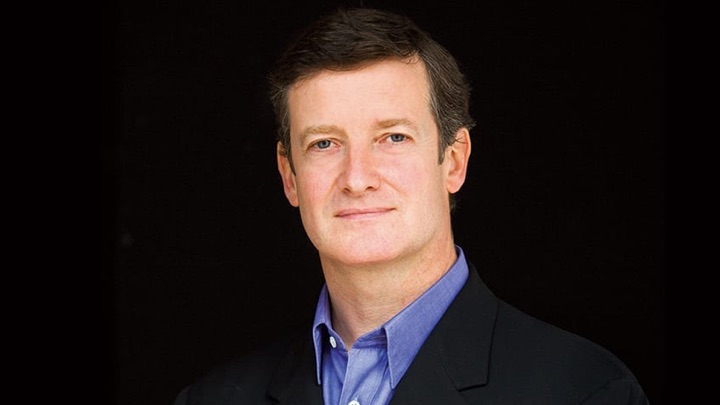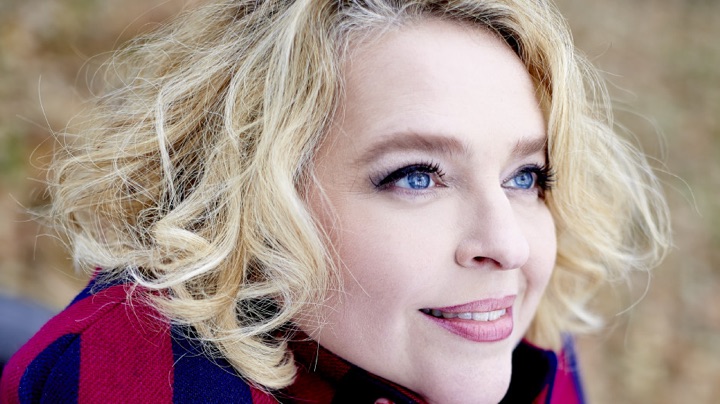
In his new directorial role at Cal Performances, Geffen continues his organization’s tradition of inviting internationally celebrated artists to the Bay Area (apart from Bicket’s concert, other highlights this season include programs by Jonas Kaufmann and Helmut Deutsch, the Takacs Quartet, Sir Simon Rattle and the London Symphony Orchestra, Leonidas Kavakos and Yuja Wang, and Jamie Barton), forming something of a mini-Carnegie Hall on Berkeley’s rolling hills.
In a nod to the critically acclaimed concert series pioneered in New York, Mr. Geffen has also forged important annual partnerships with the Danish String Quartet and the English Concert to further enrich the Bay Area’s musical scene.
During Sunday’s performance, the conductor engaged Handel’s instrumentation with a precise and sensitive ear, an unerring sense for tempi, and thought provoking artistic choices that reveal the dramatic riches of his musical architecture.
Most revelatory among Mr. Bicket’s ideas were his modulations of the continuo to create dynamic contrasts within Handel’s da capo arias, and his foregrounding of specific instrumental colors to reinforce the work’s theatrical core.
The English Concert’s outstanding musicians responded in kind to Bicket’s direction, executing his ideas with a finished and dramatically pliant orchestral backdrop. His musicians dipped one’s ears in baroque gold by attacking the music with a water-tight unanimity, and exhibited sensitivity to the drama by creating a seamless interplay with the principal soloists.
Notable among the players were Sergio Bucheli at the theorbo and Joseph Crouch as principal cello, with Crouch supplying achingly expressive obligatos to Alcina’s more solemn and introspective scenes. Another highlight was Nadja Zwiener’s breathtaking violin solo, heard to greatest effect in Morgana’s second act aria “Ama, sospira.”
For his vocalists, Mr. Bicket assembled baroque singers that include Karina Gauvin as the titular enchantress Alcina, Lucy Crowe as Alcina’s impulsive sister Morgana, Paula Murrihy as the ensnared hero Ruggiero, Elizabeth DeShong as Ruggiero’s betrothed Bradamante, Alek Shrader as Morgana’s lover Oronte and Wojtek Gierlach as Ruggiero’s tutor Melisso. While this cast made a generally strong showing on Sunday, its standout members create the greatest anticipation for the Handel projects that will come to the Bay Area during future seasons.
Amid this accomplished cast, Crowe exuded the most infectious vitality and charisma in the show-stealing part of Morgana. She illuminated her character’s music with a pristine, firmly centered soprano that capably gilded her arias with dazzling ornamentation. Her virtuosic “Tornami a vagheggiar” brought the house down with thundering applause at the close of Act 1, and her beautifully sincere “Credete al mio dolore” in Act 3 served as an emotional focal point for the opera.
Few artists appear to relish in the act of conjuring a character out of music as Crowe does with Handel’s heroines (her recent studio Rodelinda with the English Concert deserves a listen for her outstanding portrayal of the Lombard Queen.)
Gauvin brings an idiomatic affinity with Handel’s music to her portrayal of the centerpiece role. Despite her stylistic fluency, this erstwhile Morgana’s (she played the higher-lying sister brilliantly in Alan Curtis’ 2009 recording) bright, quavery tone at times lacked the depth and the firmness to convey the gravitas, the insecurity and the existential devastation necessary for an impactful portrayal of the anti-heroine.
While her essaying of Alcina’s pair of second act arias (“Ah! mio cor!” and “Ombra pallide”, the character’s emotional nexus) emerged with more emotional immediacy, her performance didn’t attain the heights she achieved in her best Handelian portrayals.
Murrihy and DeShong, the mezzo-sopranos playing Ruggiero and Bradamante, bring admirable technique to their portrayal of the lovers. As Bradamante, DeShong dispensed the coloratura in her arias “E gelosia” and “Vorrei vendicarmi” with great bravura, and is largely impressive and convincing through the sections where the character inhabits a travesti role.
Ms. Murrihy, who cut a handsome figure onstage as the ensnared Ruggiero, was a bit of a dramatic cipher through the first half of the opera. After Alcina’s spell was lifted, Murrihy appeared to grasp the character with more conviction, delivering a “Verdi, prati” of repose and a “Sta nell’Ircana” of rhythmic vigor and heroic dimension.
Although he sounded slightly indisposed, Shrader provided comic relief in the first act’s “Semplicetto,” and recovered his customary sweet tone during his lyrical ballad to Morgana in Act 3. Gierlach, in his sole second act aria, sang a beautiful “Pensa a chi geme d’amor.”
Bicket and his English Concert emerged from the pandemic with outstanding projects that include a superb reference recording of Handel’s Rodelinda, an upcoming plan to mint the composer’s Tamerlano, and a now bicoastal annual US tour to present Handel’s dramatic works in concert.
If this weekend’s Alcina represents a benchmark for the English Concert’s musicianship, Bicket and Geffen’s new partnership should prove to be a welcome aural feast for California-based admirers of this repertory and his ensemble’s outstanding work.
Photos: RIchard Haughton (Bicket); Julien Faugere (Gauvin).




